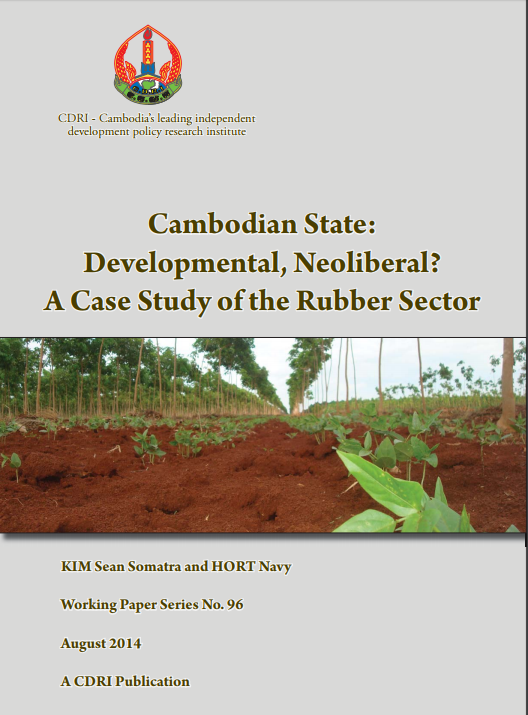
Cambodian State: Developmental, Neoliberal? A Case Study of the Rubber Sector
The majority of studies of governance reform in Cambodia look at the impact on democratic consolidation; not enough attention is given to development. This paper aims to understand how reforms have impacted the state’s ability to support economic growth, using the framework of developmental state with a focus on four characteristics. Based on a...
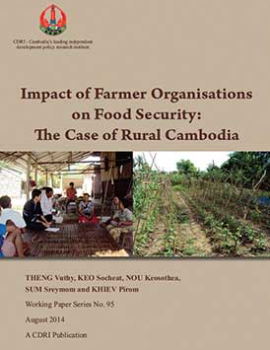
Impact of Farmer Organisations on Food Security: The Case of Rural Cambodia
This study assesses the impact of participation in farmer organisations (FOs) on the food security of rural households in Cambodia. The study was started in November 2010 and completed in June 2012. The study set out to: (1) examine the roles, operations and challenges of FOs in improving household food security; (2) analyse the household characte...

The Enduring Gap: Decentralisation Reform and Youth Participation in Local Rural Governance
To understand the contribution of the decentralisation reform to youth participation in local rural governance, this paper reviews empirically how youth have utilised the participatory opportunities enabled by the decentralisation reform based on three themes: civic, political and electoral. The findings suggest that despite decentra...
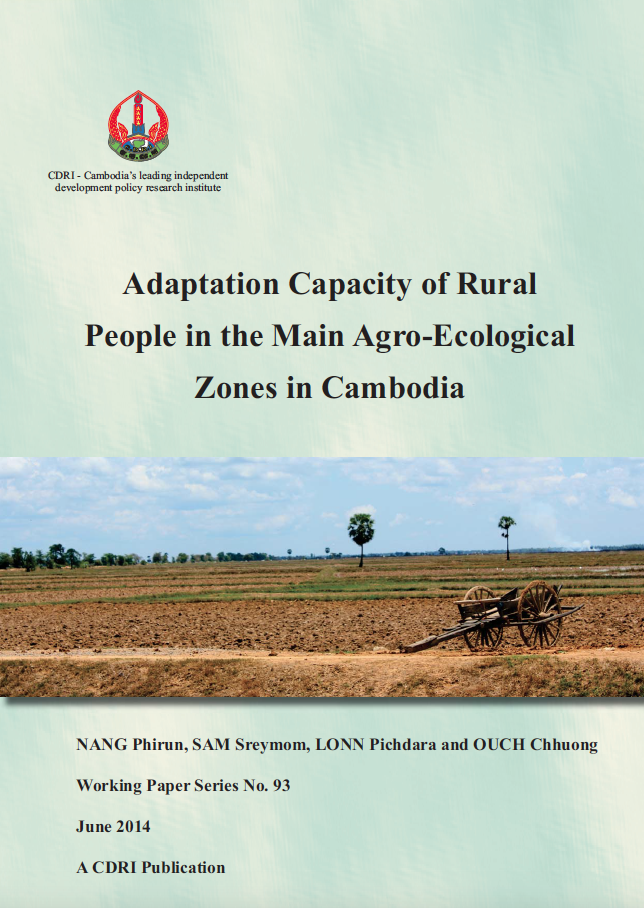
Adaptation Capacity of Rural People in the Main Agro-Ecological Zones in Cambodia
Cambodia is divided into four agro-ecological zones—the Tonle Sap plain, Mekong plain, mountains/plateau and coast—representing heterogeneous agricultural activity, population and livelihood systems (UNDP 2011b). Climate change impacts and the adaptive capacity of the people differ from one zone to another. Adaptation measures have varied according...
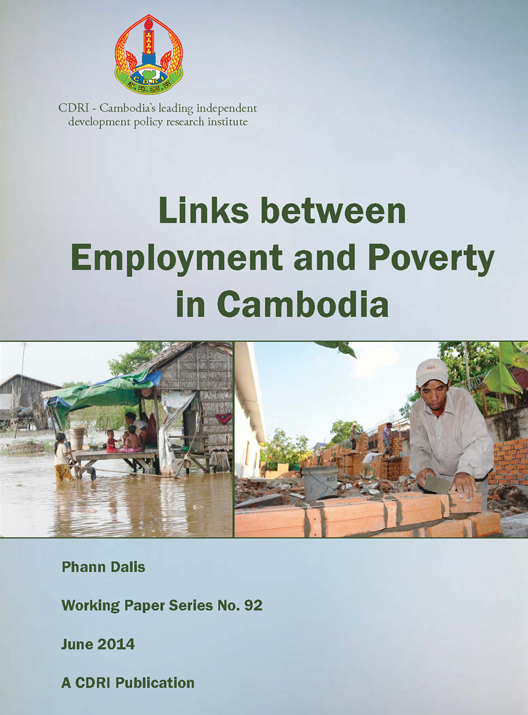
Links between Employment and Poverty in Cambodia
This paper explores labour market structure and employment links to poverty in Cambodia. Employment elasticity of growth, labour productivity and real wage growth are the main indicators of the labour market situation, while probit models estimate the connection between household employment and poverty likelihood. The paper combines macro and m...
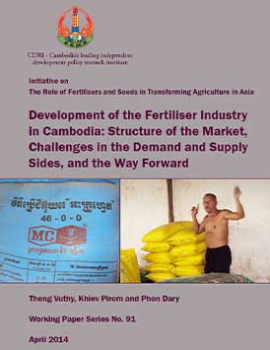
Development of the Fertiliser Industry in Cambodia: Structure of the Market, Challenges in the Demand and Supply Sides, and the Way Forward
This study examines the development of Cambodia’s fertiliser industry, focusing on market structure, demand and supply challenges, and policy directions. Fertiliser plays a vital role in agricultural intensification, contributing to increased crop yields, food security, and rural incomes. Despite rapid growth in fertiliser use, Cambodian farmers fa...
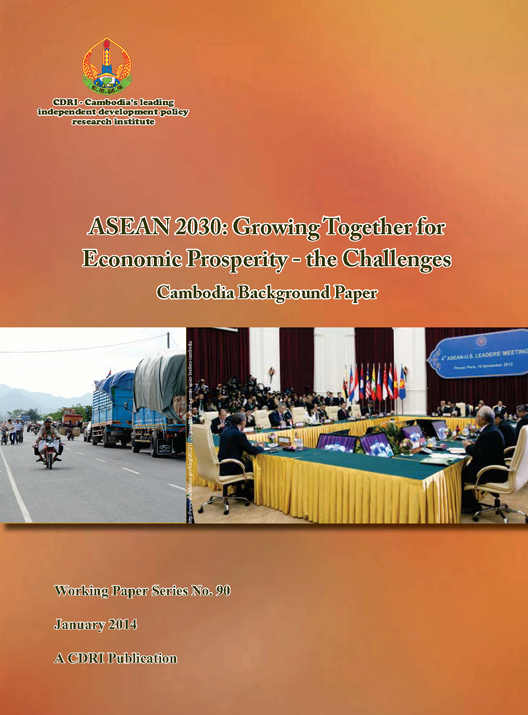
ASEAN 2030: Growing Together for Economic Prosperity – The Challenges
This paper provides a comprehensive analysis of Cambodia’s development trajectory and its aspirations toward 2030 within the ASEAN framework. Despite its post-conflict legacy, Cambodia has achieved notable progress in peace, stability, and economic growth over the past two decades. The study outlines Cambodia’s economic transformation, highligh...
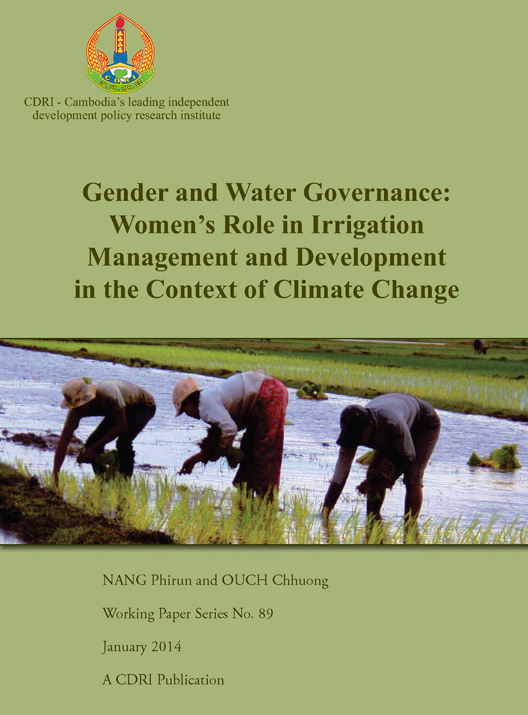
Gender and Water Governance: Women’s Role in Irrigation Management and Development in the Context of Climate Change
This study explores the role of women in irrigation management and agricultural development in Cambodia, particularly in the context of climate change. Drawing on fieldwork in three provinces—Kompong Thom, Pursat, and Kompong Chhnang—the research examines gender roles, constraints, and adaptive capacities within Farmer Water User Communities (...
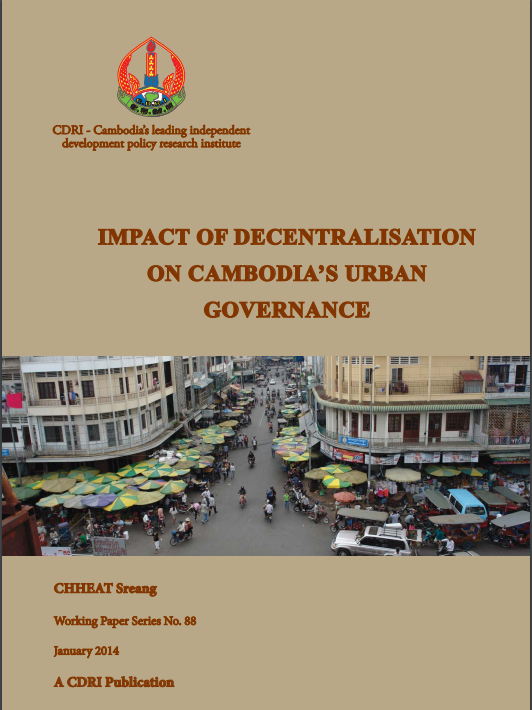
Impact of Decentralisation on Cambodia’s Urban Governance
This study explores the effects of decentralisation on urban governance in Cambodia, focusing on the role and performance of sangkats—the lowest administrative units in urban areas. While decentralisation has been promoted as a means to enhance local democracy, accountability, and service delivery, its implementation in urban contexts remains u...
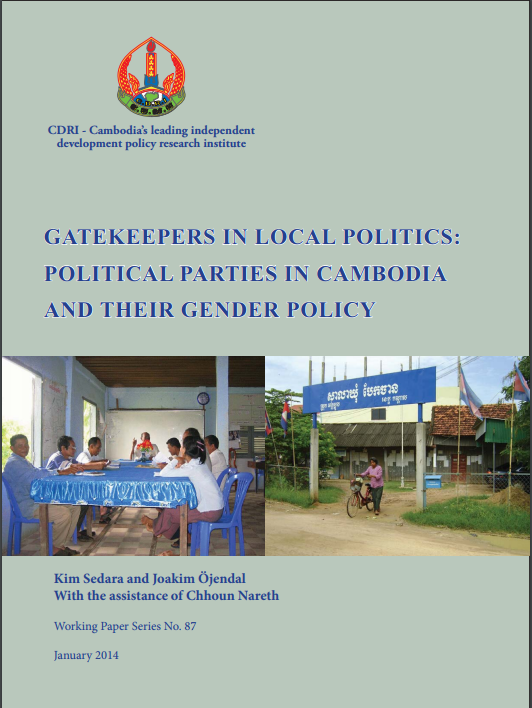
Gatekeepers in Local Politics: Political Parties in Cambodia and Their Gender Policy
Gender issues have become a part of mainstream Cambodian politics over the last decade, and gender-neutral electoral systems have been developed in cooperation between donors and government. Female representation has been achieved primarily through direct and indirect elections at different levels. And although Cambodia is a male-dom...
